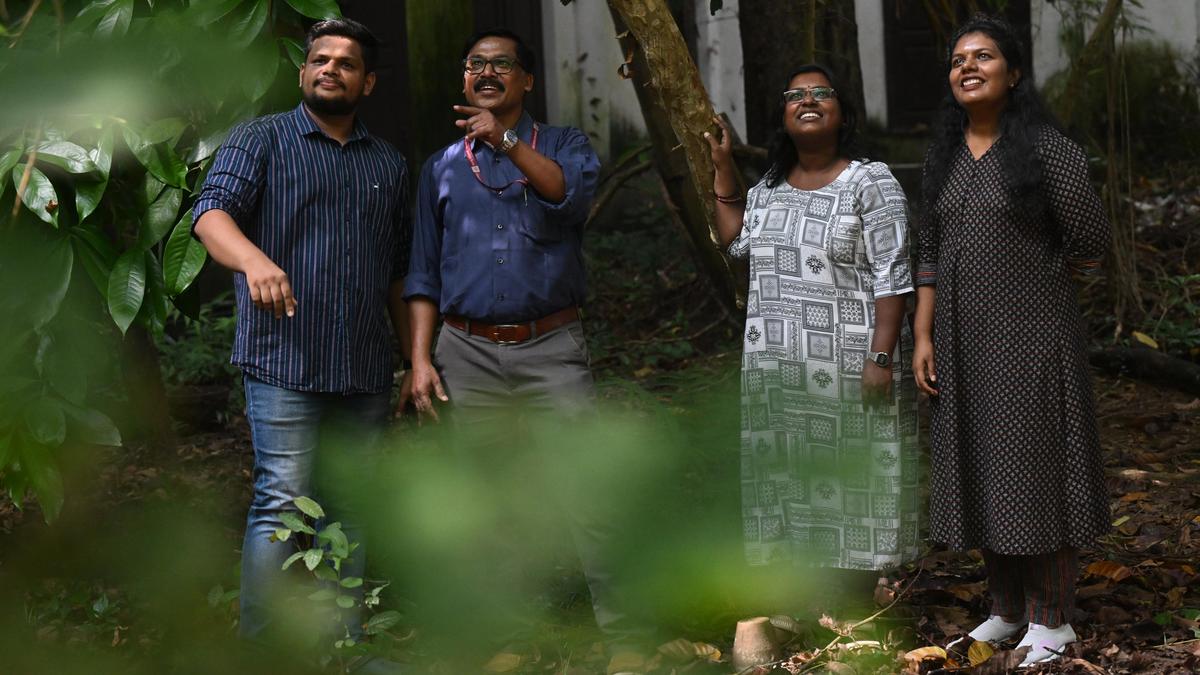Home / Science / Kochi College's Lichen Lab Uncovers Biodiversity Gems in Western Ghats
Kochi College's Lichen Lab Uncovers Biodiversity Gems in Western Ghats
7 Nov
Summary
- Lichenology lab at Maharaja's College, Kochi houses over 4,000 lichen specimens
- Researchers discover 4 new lichen species in the Western Ghats
- Lichens play vital role as biomonitors of air pollution and forest health

As of 2025-11-07T12:23:57+00:00, the 'Lichenology Lab' at Maharaja's College in Kochi, Kerala has been making significant contributions to the understanding of lichen diversity in the Western Ghats. This unassuming space, which houses over 4,000 dried lichen specimens, has become a hub for groundbreaking biodiversity research.
Over the past year, the lab's team, led by Associate Professor Stephen Sequiera and his doctoral scholars Arun Christy, Aswathi Anilkumar, and Arsha S Mohan, has identified four new lichen species from the Western Ghats region. These newly discovered species - Parmotrema sahyadricum, Solenopsora rhizomorpha, Buelloa ghattensis, and Pyxine janakiae - have been published in international scientific journals, further expanding the known lichen diversity of this biodiversity hotspot.
Lichens, which are formed through a symbiotic relationship between fungi and algae or cyanobacteria, play a vital role in the ecosystem. They act as biomonitors, absorbing pollutants directly from the air and indicating the health of the environment. The team's research has also highlighted the importance of conserving and sustainably utilizing these unique organisms.




